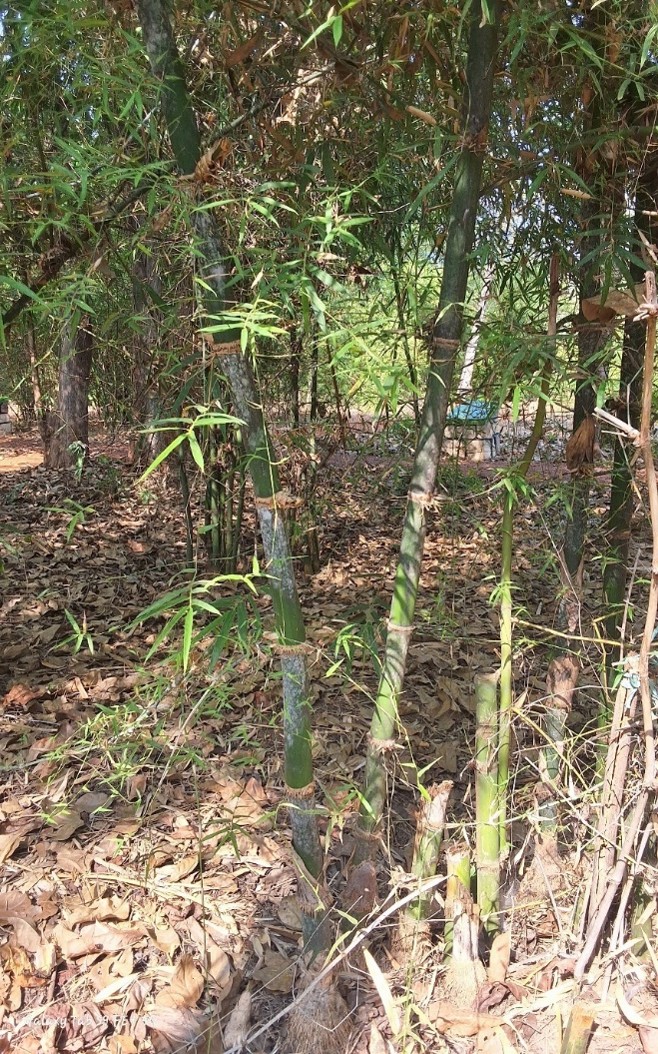Dendrocalamus strictus

Dendrocalamus strictus
Dendrocalamus strictus commonly known as Male Bamboo or Solid Bamboo, is a clumping bamboo species native to India and Myanmar. It is found in moist, subtropical and tropical forests, primarily in the foothills and along riverbanks at elevations ranging from 500 m to 2,000 m. This bamboo is widely distributed across Central and Eastern India, including Madhya Pradesh, Maharashtra, and Odisha, and has also been introduced to parts of Southeast Asia for forestry purposes. The species thrives in areas with 2,000 mm to 3,500 mm of annual rainfall and prefers fertile, well-drained soils, although it can tolerate slightly acidic to neutral pH levels. The culms of Dendrocalamus strictus can grow between 10 to 20 meters in height, with a diameter ranging from 10 to 20 cm. The culms are initially green but develop a yellowish tinge as they mature. The internode length spans from 25 to 50 cm, and the culm sheath is green when young, turning brownish-yellow with age. The adaxial surface of the sheath is glabrous, while the abaxial surface is densely covered with brownish hairs, and the margin is ciliate. The leaves of this bamboo are lanceolate, measuring 15 to 30 cm in length and 3 to 5 cm in breadth, with pointed tips. The inflorescence of Dendrocalamus strictus is a large, dense panicle with multiple branches, bearing numerous small flowers. The empty glumes are ovoid or lanceolate, with many veins, while the flowering glumes are larger, often with hairy margins. The stamens are exserted with glabrous anthers, and the pistil has a hairy style with a small, inconspicuous stigma. Flowering is rare and occurs infrequently, typically once every 30 to 50 years. Flowering has been reported in parts of India, but it is not a common occurrence, and the bamboo rarely produces seeds due to its infrequent flowering cycle. Propagation of Dendrocalamus strictus is typically achieved through culm cuttings, although it can also be propagated by dividing mature clumps, separating new shoots or offsets, or using tissue culture in controlled environments. This bamboo has various uses, primarily in construction. It is extensively used for making poles, scaffolding, and fences due to its strength and durability. Dendrocalamus strictus is also highly valued for crafting furniture, baskets, and other handicrafts. The young shoots of this bamboo are consumed in various parts of India, particularly in local cuisines, and are considered a delicacy. Its deep-rooted clumps are effective in preventing soil erosion, especially in hilly terrains. Additionally, it is used in the pulp and paper industry for manufacturing paper and pulp products. In traditional uses, the bamboo is employed to make musical instruments, tool handles, and various agricultural implements.
Listen Audio:
Need assistance? BRTC Faculty